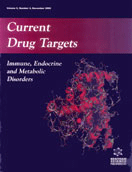Abstract
Atherosclerotic vascular disease is among the most frequent causes of death worldwide. Current therapeutic strategies concentrate mainly on lowering of low-density lipoprotein (LDL) cholesterol and an impressive reduction in the risk for cardiovascular morbidity and mortality has been achieved. Inflammatory mechanisms are more and more recognized to play an important role in vascular disease as inflammatory markers correlate with prognosis in acute and chronic coronary artery disease. HDL cholesterol exerts antiinflammatory effects on the vasculature. Moreover, HDL is an antioxidant, inhibits thrombogenesis, and has pro-fibrinolytic properties. Last but not least, HDL mediates reverse cholesterol transport. These pleiotropic effects make HDL an ideal therapeutic target for novel therapeutic strategies specifically aiming at HDL elevation for the prevention and treatment of atherosclerotic vascular disease.
Keywords: hypercholesterolemia, coronary artery disease
 1
1


















